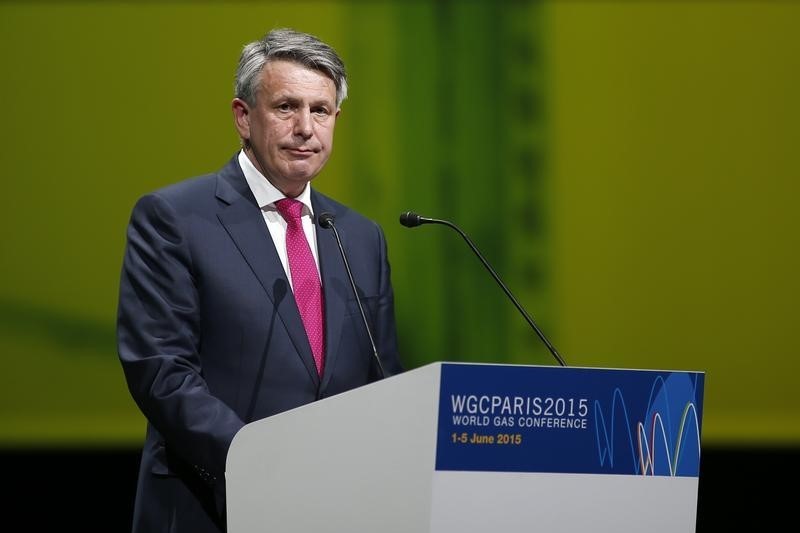By Mike De Souza
FORT SASKATCHEWAN, Alberta (Reuters) - The U.S. rejection of the proposed Keystone XL pipeline was driven in part by protesters who are increasingly frustrated with inaction on climate change, Royal Dutch Shell Plc (L:RDSa) Chief Executive Ben van Beurden said on Friday.
Speaking at the launch of Shell's new carbon capture and storage project in Alberta, the first Canadian project of its kind in the oil sands industry, van Beurden said anti-fossil-fuel movements are growing because of anxiety and resentment about a failure to reduce greenhouse gas emissions.
"If you look back to the last 10, 15 years, you could argue that progress has actually been disappointing," van Beurden said.
This is why some are taking "extreme" positions to stop pipelines, to divest from fossil fuels, to advocate for leaving it in the ground or to demonize the industry, he said.
Oil sands, large deposits of crude in the Western Canadian province of Alberta, are often criticized by environmental groups because of energy-intensive production that makes the industry the fastest-growing Canadian source of greenhouse gas emissions. Many environmentalists pointed to the oil sands industry's environmental footprint to argue against Keystone XL.
But Shell, which recently halted its Carmon Creek oil sands project in part because of a lack of pipeline export capacity, said it has known the future of TransCanada Corp's (TO:TRP) Keystone XL was uncertain.
Keystone has been in an "uncertainty window" for seven years while it has been under review by the United States, Lorraine Mitchelmore, president of Shell's Canadian unit, told reporters.
She added that there are at least three other possible pipeline alternatives to the Keystone project, which was rejected by U.S. President Barack Obama, and Shell would like to see at least one approved.
The Alberta government has introduced carbon pricing policies to address rising emissions. But van Beurden said his company would like to see broader and stronger carbon pricing mechanisms adopted around the world in a way that will encourage new solutions.
The C$1.3 billion ($978 million) project launched on Friday, heavily subsidized by the Canadian and Alberta governments, can capture a third of emissions from Shell's Scotford upgrader, sending it through 65 km of pipeline into saline aquifers for storage 2 km underground. The upgrader converts bitumen from two oil sands mines into synthetic crude oil.

($1 = 1.3291 Canadian dollars)